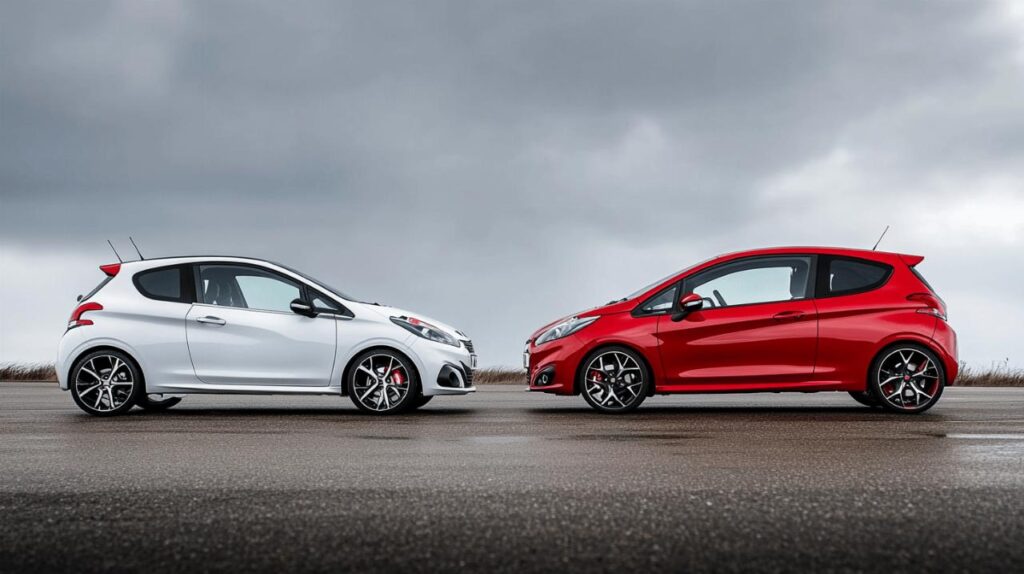When it comes to modern hot hatchbacks, few rivalries are as compelling as the face-off between the Peugeot 208 GTI and the Ford Fiesta ST. Both vehicles represent the pinnacle of compact performance engineering, offering driving enthusiasts an exciting blend of everyday practicality with exhilarating performance. This comprehensive comparison will delve into the nuances that separate these two acclaimed hot hatches, helping potential buyers make an informed decision based on their specific preferences and requirements.
Performance specifications and engine capabilities
The hot hatch segment has always been defined by impressive performance packed into compact dimensions, and both the Peugeot 208 GTI and Ford Fiesta ST200 deliver admirably in this regard. For enthusiasts looking to explore detailed reviews and information about these vehicles, resources like those found at https://www.kammann-automobile.de/ offer valuable insights into their performance characteristics and market positioning.
Power output and acceleration figures
The Ford Fiesta ST200 comes equipped with a potent 1.6L turbocharged engine capable of producing 218 horsepower and an impressive 236 lb ft of torque when on overboost. This power translates into a 0-62mph time of 6.7 seconds, with the car reaching a top speed of 143mph. Meanwhile, the Peugeot 208 GTI also features a 1.6L turbocharged engine, delivering a slightly lower but still formidable 208 horsepower and 221 lb ft of torque. Despite the power deficit, the Peugeot actually edges out the Ford in acceleration, completing the 0-62mph sprint in 6.5 seconds and matching the Fiesta with a top speed of 143mph.
The marginal weight difference between these two hot hatches likely contributes to their performance characteristics, with the Peugeot 208 GTI weighing in at 1,160kg compared to the Fiesta ST200 at 1,163kg. While the difference is minimal, every kilogram matters when it comes to maximizing performance in the competitive hot hatch segment.
Engine technology and efficiency comparisons
Beyond raw performance figures, efficiency plays an increasingly important role for modern hot hatch owners. The Peugeot 208 GTI demonstrates impressive efficiency for a performance-oriented vehicle, achieving 52.3 mpg while emitting 125g/km of CO2. The Ford Fiesta ST200, while still respectable, falls somewhat short in comparison with 46.3 mpg and emissions of 140g/km of CO2. These figures highlight the Peugeot’s superior engine tuning for balancing performance with environmental considerations.
Price considerations also factor into the value proposition of these vehicles. The Peugeot 208 GTI starts at £23,550, with optional packages potentially raising the price to £24,250. The Ford Fiesta ST200 comes in slightly lower at £22,745, representing a £2,350 premium over the standard Fiesta ST model. Some automotive experts suggest that purchasing a regular Fiesta ST and upgrading it with a Mountune performance kit might offer better value than opting for the factory ST200 variant.

Handling characteristics and driving experience
While performance specifications provide valuable benchmarks, the true character of a hot hatch emerges through its handling dynamics and the overall driving experience it delivers. Both the Peugeot 208 GTI and Ford Fiesta ST200 have earned reputations as exceptional driver’s cars, though they achieve this status through somewhat different approaches to chassis tuning and driver engagement.
Suspension setup and cornering abilities
The Peugeot 208 GTI has garnered significant praise from automotive journalists, with some considering it the best hot hatch produced in the last three decades. This acclaim stems largely from its sophisticated suspension setup, which strikes an impressive balance between compliance over rough surfaces and body control during spirited cornering. The 208 GTI manages to feel both planted and agile, inspiring driver confidence while maintaining a level of comfort that makes it suitable for everyday use.
The Ford Fiesta ST200 approaches cornering with a slightly different philosophy, offering an engaging and somewhat more raw experience. Its suspension tuning tends toward the firmer end of the spectrum, prioritizing maximum cornering grip and minimal body roll at the expense of some ride comfort. This setup results in an incredibly direct and communicative driving experience that hardcore enthusiasts often prefer, particularly on smooth roads or track days.
Steering feel and driver engagement
Steering response and feedback represent critical components of the hot hatch driving experience. The Ford Fiesta ST200 features a quick and direct steering rack that provides excellent feedback to the driver, communicating precisely what the front wheels are doing at all times. This level of connection helps drivers place the car accurately through corners and contributes significantly to the engaging character that has made the Fiesta ST range so popular among driving enthusiasts.
The Peugeot 208 GTI takes a slightly more refined approach to steering feel, offering precision without the occasional harshness that can characterize the Ford. The Peugeot’s interior, which has received more recent updates than the somewhat dated cabin of the Fiesta, also contributes to the overall driving experience. Both vehicles feature interiors that prioritize function over luxury, though the 208 GTI’s updates give it a more contemporary feel that some drivers may appreciate during daily use.

